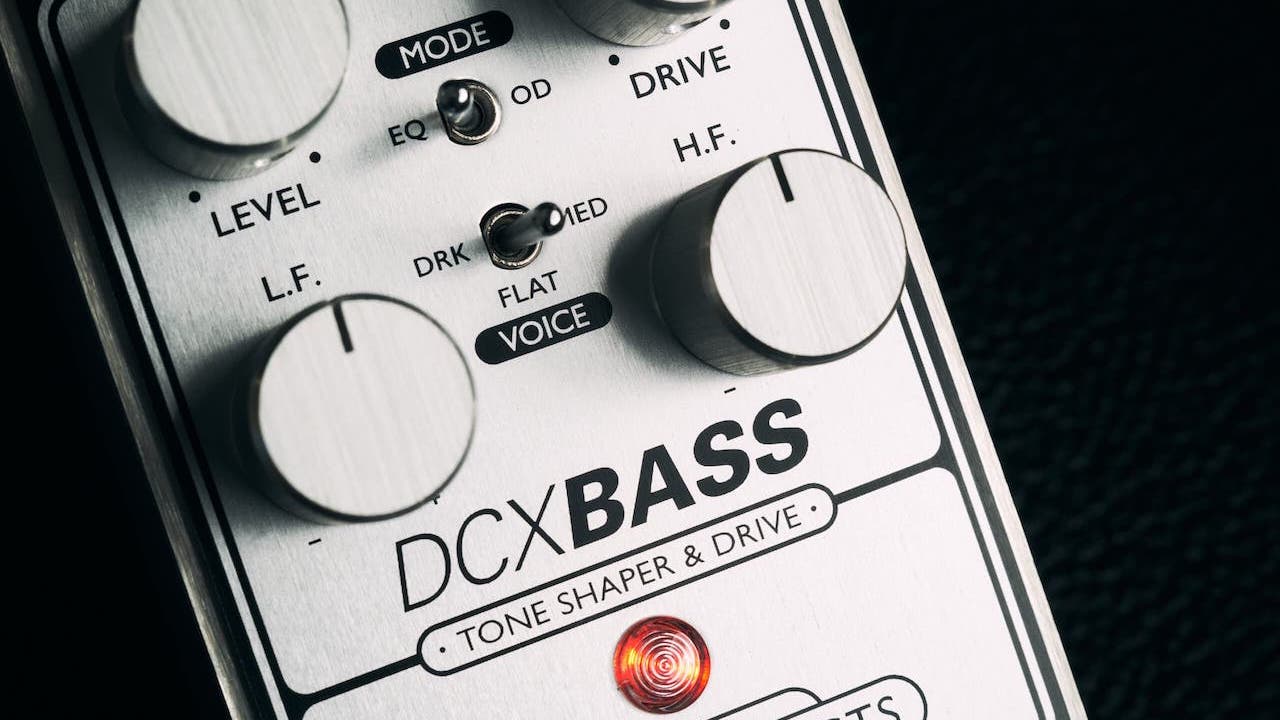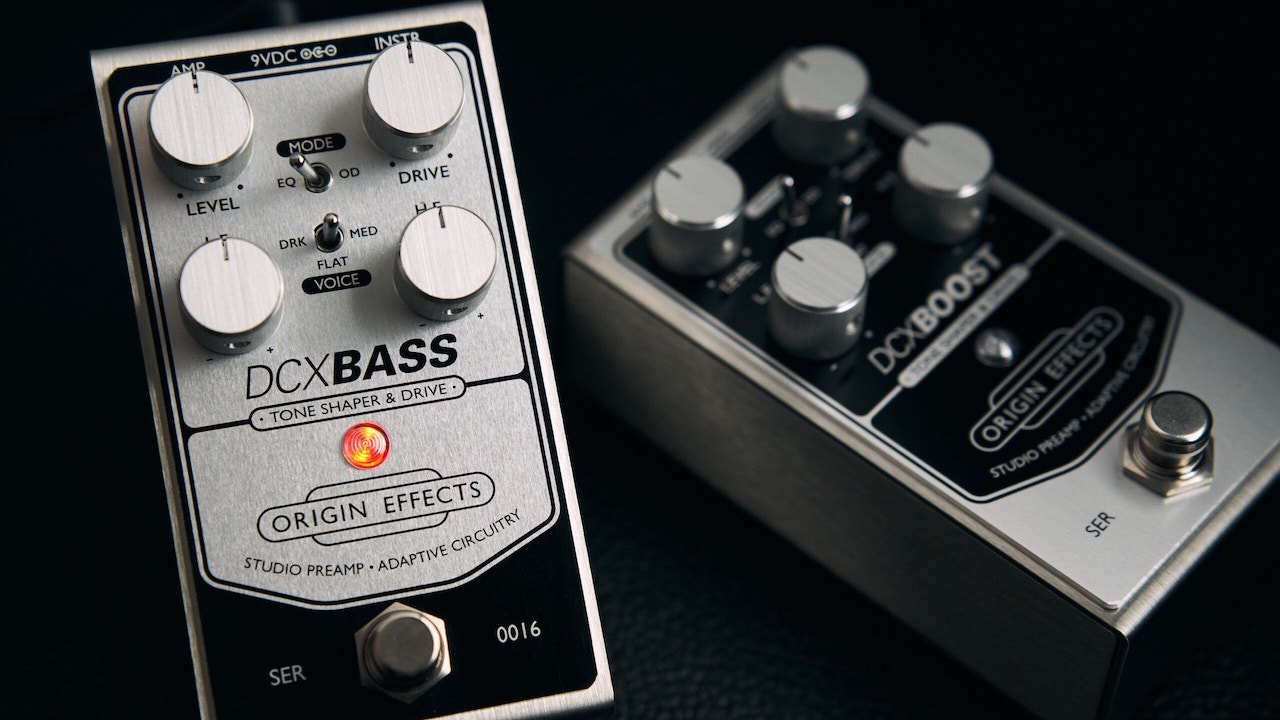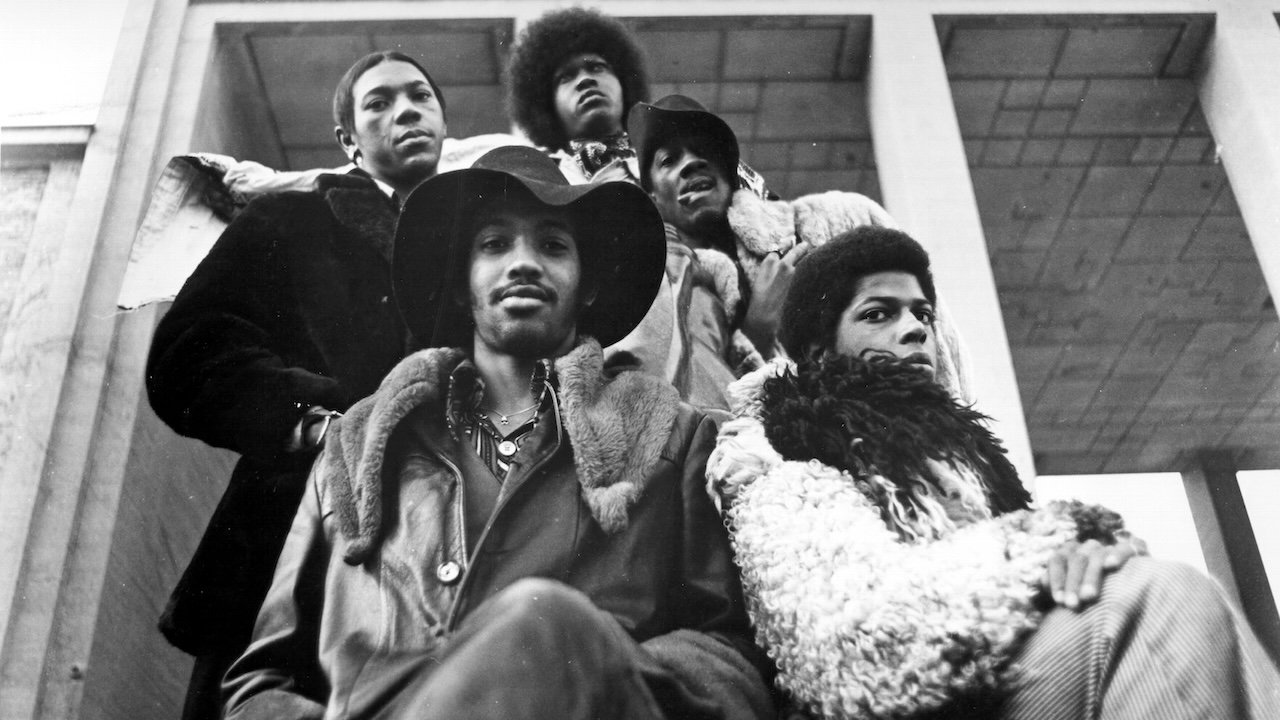Guitar World Verdict
A high-quality bass effects box containing a vast number of sounds.
Pros
- +
Brings you a range of killer, old-school studio sounds in a box.
- +
Built like a tank.
- +
Great value for this many tones.
Cons
- -
Do you really need this many options?
You can trust Guitar World
A quick internet search will reveal that there are currently over a quadrillion pedals on the market that claim to make your bass guitar sound louder, cleaner and dirtier, of varying levels of quality and priced from the suspiciously cheap to the criminally expensive. Here’s one that feels and looks trustworthy, does what it says it will do (and more) and won’t break your budget.
Inspired by Universal Audio’s 610 preamp, used in its original form to record a long list of American musicians in the last century, Origin Effects’ DCX Bass pedal aims to bring a range of old-school colours to your tone. These range from taut cleans via warm crunches to full-on overdrive, with the secondary goal to give you a degree of fine control over these sounds.
To do this, the DCX Bass uses specially chosen frequencies for our instrument and avoids the loss of low-end and the annoying treble fizz that overdrives so often deliver.
This unit has a ton of features, all right, but disguises them with a relatively uncluttered control layout, so plug in without trepidation. We’ve got four rotary controls, Drive, Level, L.F. and H. F. The first two are self-explanatory, boosting the overdrive and the output, and the latter two boost or cut low and high frequencies, remaining flat when set to noon.
The real gold comes with a feature called Adaptive Circuitry, described in the manual as “adjusting the pedal’s voicing in response to playing dynamics and volume knob changes”, in other words, you can smack the heck out of your bass strings when jumping around the stage and the drive won’t suffer. In addition, we have two selector switches for Mode and Voice: these look insignificant but do drastic things to your sounds.
The Mode switch selects between EQ mode, the lower gain setting of the two, which is great for a clean boost or a very subtle drive tone: the Adaptive Circuitry kicks in gently as you add more overdrive, rolling off the top end and keeping the sound warm rather than scratchy. The other mode, OD, keeps the treble off permanently, allowing you to summon up a demonic drive tone without breaking your neighbour’s greenhouse windows.

Use the Voice switch to control the top-end roll-off even more precisely, with three different levels of high-end reduction. These vary whether you’re in EQ or OD mode, but either way they’re labelled Flat, Medium and Dark, corresponding to how subtle the top-end removal is.
All the latest guitar news, interviews, lessons, reviews, deals and more, direct to your inbox!
As I said, there’s a whole lot of functions here, some of which you may not need, so this pedal won’t suit you if you can’t be bothered to spend time on them. If that sounds like you, invest $50 in a cheap plastic overdrive and forget about it.
The box itself is a chunky half-kilo of metal that looks able to survive being stamped on by stage divers, or thrown at your head by your drummer, and the controls are suitably tough, too.
At $319, Origin Effects has really delivered value, a crucial asset in today’s world, so if you have the time and patience to master everything it offers, try this unit out with our full recommendation.
Specs
- PRICE: $319 / £259
- ORIGIN: UK
- TYPE: Tone shaper and drive pedal
- CONTROLS: Level, Drive, High Frequency, Low Frequency, Mode switch (EQ/OD), Voice switch (Dark/Medium/Flat)
- CONNECTIONS: Standard input, standard output
- WEIGHT: 18 oz / 500g
- POWER: 9V DC adaptor 90mA
- DIMENSIONS: 58 (w) x 124 (d) x 64mm (h)
- CONTACT: Origin Effects
Joel McIver was the Editor of Bass Player magazine from 2018 to 2022, having spent six years before that editing Bass Guitar magazine. A journalist with 25 years' experience in the music field, he's also the author of 35 books, a couple of bestsellers among them. He regularly appears on podcasts, radio and TV.


